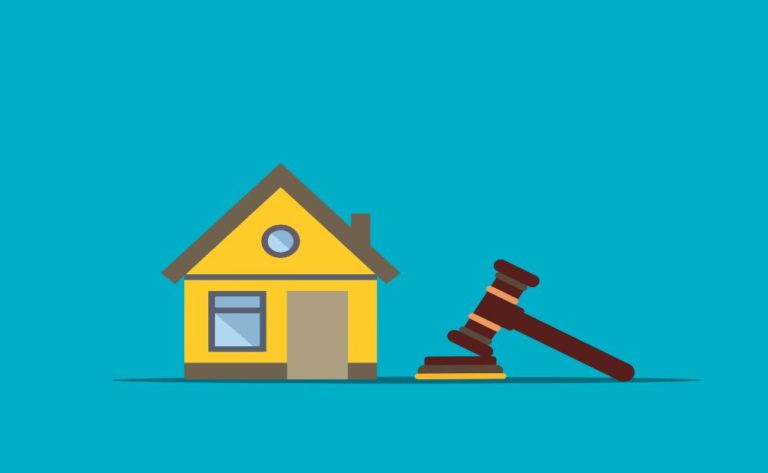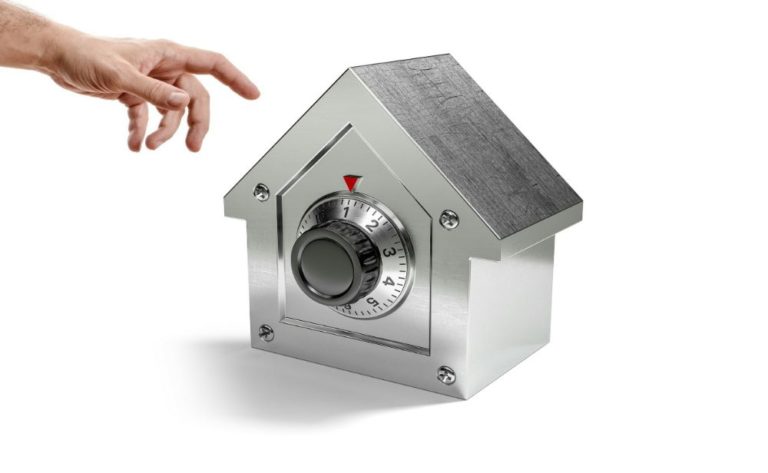Selling a House First and Then Buying Another
Are you considering purchasing a new house using the proceeds from the sale of your current property? When a seller attempts to buy and sell at the same time, they open themselves up to a number of issues that may be avoided if the seller has the opportunity to sell first and buy afterward.
Having said that, selling before buying requires a significant amount of planning, a great deal of patience, and some degree of adaptability. This is what you need to do to be successful.
Advantages of purchasing a new home after selling your current residence
Particularly in regards to your finances and your schedule, there are a lot of benefits that come along with selling your home first before buying another one.
Maintain your negotiating strength to obtain the greatest possible purchase price.
If you buy a property before selling your current one, you will be responsible for the payments on two properties: the one you just purchased and the one you still own. This creates a significant incentive to sell your current home as soon as possible. Because of this additional financial strain, you could feel the want to take the first offer that comes your way just to get things rolling again. However, if you sell your property first, you will have the ability to engage in as much back-and-forth discussion with prospective purchasers as is required in order to obtain an offer that meets your requirements.
Less pressure
When one of your sales is not inextricably linked to another buy, the pressure to meet deadlines is significantly reduced. Even while you don’t want your listing to become outdated, you can take your time finishing up any necessary repairs or staging, researching the current state of the market, and thinking about potential sales tactics.
Try to avoid having two mortgages.
You have high hopes that your house will sell soon; however, what are you going to do if you’ve already bought another house, and the one you’re trying to sell stays on the market for two, three, or even four months? When you sell your current home before purchasing a new one, you eliminate the risk of having to make payments on two mortgages at the same time.
Gather up all of the equity for a possible future acquisition.
Your equity, which is the profit you’ll make on the sale after paying closing costs and paying off what’s left on your mortgage, will become available for use as a down payment on your new home if you sell your current home first. This may make it possible for you to purchase a home with a higher purchase price.
Avoid selling contingency
When a seller is trying to buy and sell a property at the same time, they frequently make contingent offers. This means that they make an offer to buy a home contingent on the sale of their current home coming first. If you are looking to purchase a property in an environment where there is strong competition from other buyers, making an offer that is contingent on meeting certain conditions is not the best strategy. If you sell your current home first, you’ll be able to make more competitive bids on other homes, increasing the likelihood that you’ll find the one you really want.
Possibility of paying completely in cash
If you are able to make a profit on the sale of your current home that is sufficient to fully fund the purchase of a new home, you won’t have to take out an expensive mortgage, and your all-cash offer may be quite enticing to the people selling their homes.
Is it wiser to sell the home first and then look for a new one?
If you are in a sellers’ market or if you cannot afford to buy a new home without tapping into the equity in your current home, it is recommended that you sell your current property before looking for a new one. The following is a guide that will assist you in determining whether or not selling first is the best approach for you.
Conduct research on the regional market.
Your first order of business will be to figure out whether the market you are in favors buyers or sellers. Research not only the market in which you will be selling, but also the market in which you will be purchasing, if you will be moving into a new market. The majority of individuals buy and sell in the same location. Working with an experienced real estate agent can be especially beneficial if you want to purchase property in a region that you are not familiar with. It is recommended that you sell your home during a sellers’ market and purchase a new one during a buyers’ market. However, it is more typical for people to move to a neighboring place than making a long-distance transfer, which can cause significant shifts in market patterns.
Conditions prevailing in the seller’s market
When there are more people looking to buy homes than there are houses on the market, which is known as a seller’s market, sellers typically have the upper hand in negotiations. The following are some important indicators that the market is currently favorable to sellers:
There are fewer price reductions, homes are sold very near to or even above their asking price, and homes are on the market for a shorter amount of time overall.
Selling in a sellers’ market: Your home has a better chance of selling quickly in a market that favours sellers, which is the circumstance that sellers want to find themselves in.
Buying in a sellers’ market: When purchasing in a market where sellers have the advantage, you should be prepared for some level of rivalry.
Market conditions favourable to purchasers
When there is an excess of goods or services available for purchase, it creates what is known as a buyer’s market. Purchasers have an easier time negotiating for lower prices, repairs, and credits in markets that are favourable to buyers. Take into consideration these important indicators:
• Homes remain on the market for longer periods of time
• A greater number of homes see at least one price reduction
• Homes sell for a price that is lower in comparison to their original asking price
When there are more buyers than sellers: You should prepare yourself for the sale of your property to take significantly longer than the norm. When the time frame for the sale of your home is uncertain, it may make even more sense to sell the home you now own first in order to reduce the amount of time you will spend carrying two mortgages.
Purchasing in a market that favors buyers: In a perfect scenario, when you make a purchase in what is known as a buyer’s market, you should have more time to make a decision and more ability to negotiate the price.
How to figure out how much equity you have in your property.
The current sale price of your home can be used as a basis for computing your purchasing power in the real estate market. If you are just getting started with the process of selling your home, your real estate agent will be able to assist you in determining the appropriate price to list your home for sale at, as well as guide you through the costs associated with selling, so that you will have a better idea of how much money you will likely end up with.
To help you determine your eventual gains, below is an example that simplifies the process:
Let’s say you’ve determined that the asking price for your home should be $220,000. You should plan on spending anywhere from 5% to 6% of the sale price on agent commissions (a maximum of $13,200). You should also anticipate spending an additional 2% to 4% of the purchase price on seller fees. These fees include escrow, title insurance, and the services of a real estate attorney, and the most you should expect to spend is $8,800.
That leaves you with 198 thousand dollars. Your total profit will be equal to this amount if you do not have a mortgage on the property. But let’s imagine you still have $100,000 left to pay on the mortgage. You will need to pay the balance that is remaining on your mortgage, which will leave you with $98,000 to invest toward the purchase of your new residence.
House-buying and -selling advice from the experts
Timing is typically of the essence when it comes to selling a house in preparation for purchasing another one. The following are some tactical suggestions for accelerating the process:
Consider the all-cash proposals with due consideration.
There is a good reason why sellers are so fond of accepting cash bids. The likelihood of the offer falling through due to financial constraints is lower, and transactions involving cash purchasers typically take place more swiftly.
Think about doing a lease-back.
In a lease-back arrangement, you sell your house to the new owner, but the new owner agrees to lease it back to you for a certain amount of time. This arrangement enables you to avoid having to pay for short-term living expenditures. This agreement needs to be negotiated as part of the process of making an offer, and the buyer needs to be prepared to accommodate your request in order for this to work out. In a sellers’ market, when buyers are forced to be more flexible in order to get into the house they want, you have a better chance of finding a buyer who is ready to agree to your terms.
How to sell your current home and purchase a new one afterward
After you have come to the conclusion that selling your current home and purchasing a new one is the best course of action for you, there are a few more obstacles for you to overcome. Here is a guide that will help you navigate the logistics.
Get an early start on your search.
During the time that you are waiting for the sale of your home to close, there is no harm in looking into possible new residences. Make use of the time while you are under contract to investigate different communities, investigate school ratings, look at homes in your price range, and improve the criteria for your home hunt. You’ll be able to strike the ground running once the sale of your property is finalised thanks to these preparations.
You have the luxury of taking your time with the research and touring process if you are selling in a market that favours buyers. However, if you are selling in a market that favours sellers, you may have an easier time finding a buyer for your house. Get an early start on your research so that you can be well-prepared.
Find yourself some temporary housing.
Make plans to stay in a temporary housing facility for a total of three months. This will allow you enough time to search for and purchase a new residence for a total of twelve weeks. It is possible that the process will take longer if you are buying in a sellers market; therefore, you may need to adapt your timeframe accordingly.
Because it can be difficult to get leases for short periods of time, you shouldn’t be too choosy. Considering that this is simply a temporary transfer, it is not necessary for the finishes to be impeccable. You can save money for the purchase of a home by choosing a rental that is more reasonably priced for yourself. Since you won’t be staying in your temporary accommodation for an extended period of time, one way to minimise costs is to consider renting a smaller location and storing the majority of your furniture and other possessions.
Consider looking for a rental property in the community you plan to buy a home in so that you can get a sense of what it will be like to live there before you make the investment.
Because they’ll need to find a new tenant for your space in just a few months, landlords typically ask for a higher rent payment for month-to-month or shorter-term leases. If you are having trouble locating temporary lodging, try looking for a sublease, a vacation-type property, or a corporate rental; alternatively, you could consider staying with relatives or friends for a short period of time.
Estimate the costs of moving and storing your belongings.
You won’t be relocating once, but twice: first from your previous residence to temporary accommodation, then from temporary housing to your new home; therefore, you’ll need to adjust your budget accordingly. There is no reason to transport all of your stuff with you if you are relocating to a location that is temporarily smaller than where you are currently living. Consider renting a mobile storage unit for your belongings. A lot of businesses will send an empty container to your house, where you can then fill it up with whatever you want, and then they will keep it somewhere else and bring it back to you when you are ready. Keeping the amount of stuff you move to a minimum can be an efficient method to save money.






